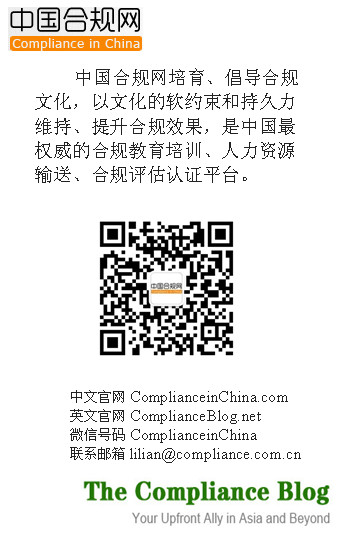It is reported that the Ministry of Commerce (MOFCOM) and the State-assets Supervision and Administration Commission (SASAC) are going to mobilize nine industry associations to launch a system to evaluate the creditability rate on pharmaceutical enterprises. In addition, MOFCOM and SASAC are going to jointly work with the National Health and Family Planning Commission (NHFPC) and the State Administration for Industry and Commerce (SAIC) to establish and streamline the creditability system of the whole pharmaceutical industry, by which bad records on pharmaceutical enterprises will be collected and archived.
It is also reported that the Ministry of Public Affairs (MPA), in charge of investigating the economic crimes, is phasing out of the investigation of pharmaceutical enterprises. However, NHFPC is talking the initiative in establishing a steering team in combating commercial bribery, and the team is going to do some “undercover” inspection on the possible bribery incidents in various provinces. However, it is not clear how the inspections would be “undercovered.”
Actually, the predecessor of NHFPC, the Ministry of Health, adopted a blacklisting system, by which each province could archive the bribing enterprises that bribed around and were punished in the province. The blacklisted enterprises were then prohibited from engaging in bidding and tendering in the concerned blacklisting province. However, the blacklisting system was not totally run and maintained effectively. Some provinces are quite active in running the blacking system, but some provinces are not. For example, the blacking system of some province is protected by pass code. However, nobody knows where to get the pass code to log into the blacking system to see what are the enterprises so blacklisted. It remains to be seen if the new system of NHFPC would be better.
In 2006, China did a similar campaign to fight bribery in pharmaceutical industry, which caused a great impact on the industry. There were 1310 enterprises losing as much as RMB 4.4 billion (approximately US$ 733 million).
You may follow the link for the news in Chinese.
* Licensed in the PRC and the New York State of the U.S., Henry Chen, the author, is a Shanghai-based partner at MWE China Law Offices in stratetic alliance with McDermott Will and Emery.
Henry has extensive experience representing enterprises in administrative and criminal investigations of alleged commercial bribery cases; providing counsel for the investigation of employee misconducts; helping clients conduct pre-merger due diligence investigations and post-merger integrations; providing training and seminars in Chinese and English to the employees of MNCs regarding anti-corruption and bribery pitfalls; providing FCPA investigations and auditing for the presence of American companies in China and for companies listed in the U.S.; helping companies update and strengthen their internal anti-corruption compliance programs and controls and tailoring them to the unique features of Asian markets.
Henry’s research about FCPA enforcement and Chinese anti-bribery and -corruption law has been published or quoted in leading publications, including the Bloomberg Asia Pacific Law Report, Wall Street Journal, China Law & Practice and ALB. Henry is also the host of Linkedin groups: "Compliance in China” and “Anti-Corruption Compliance Asia.”
Henry is available at henrychen@mwechinalaw.com






